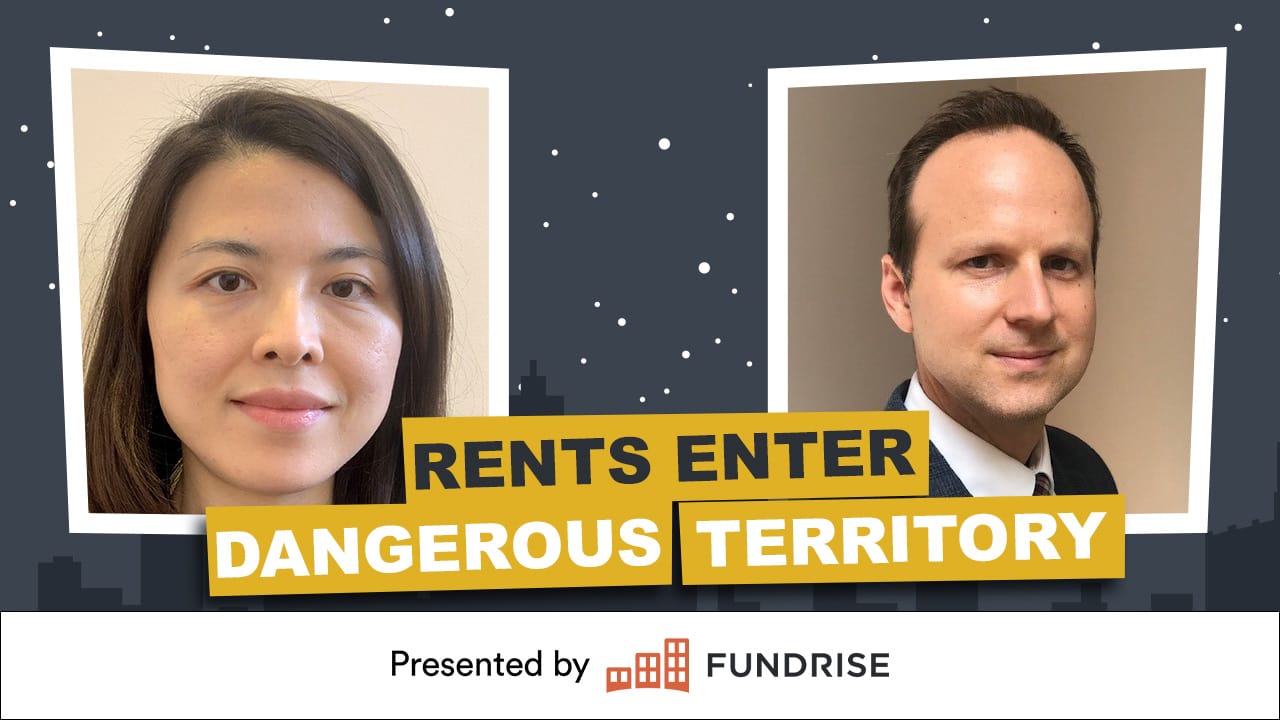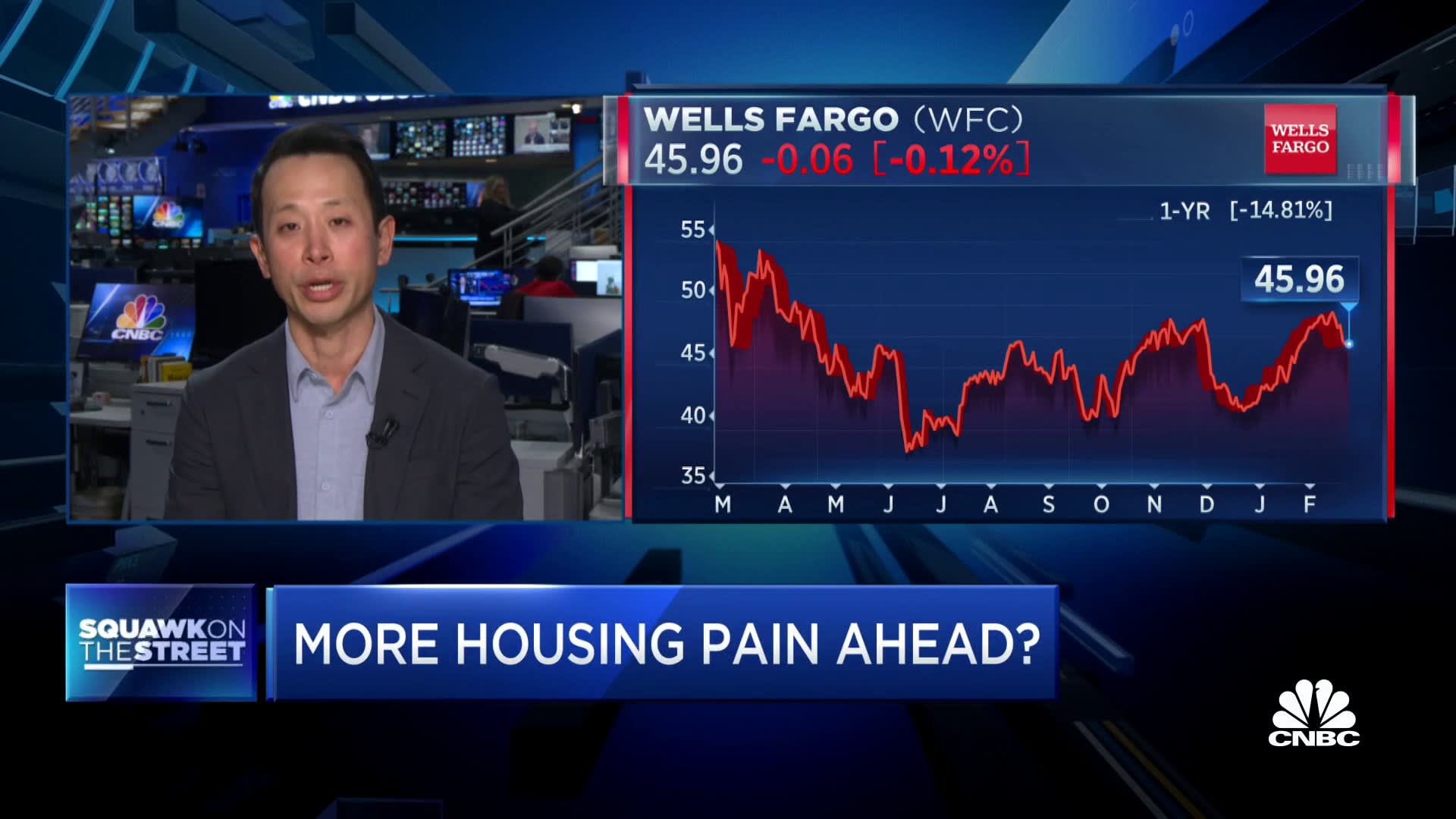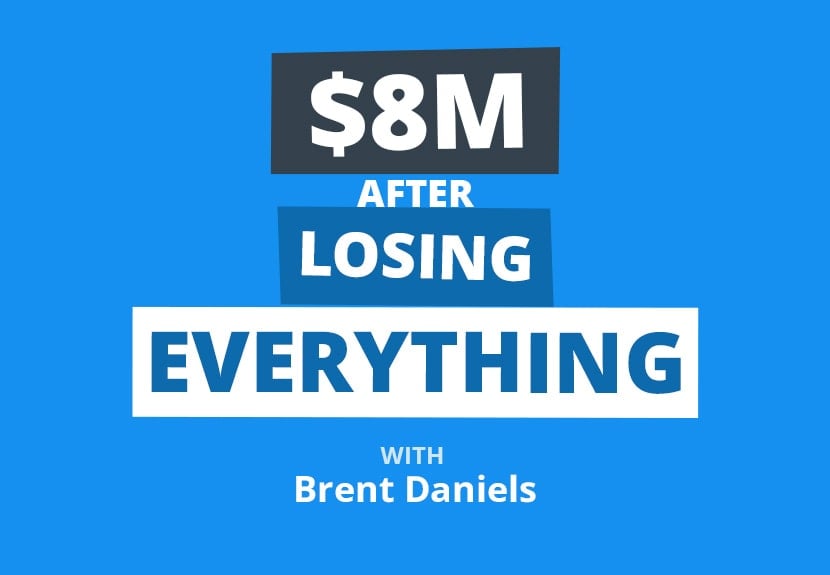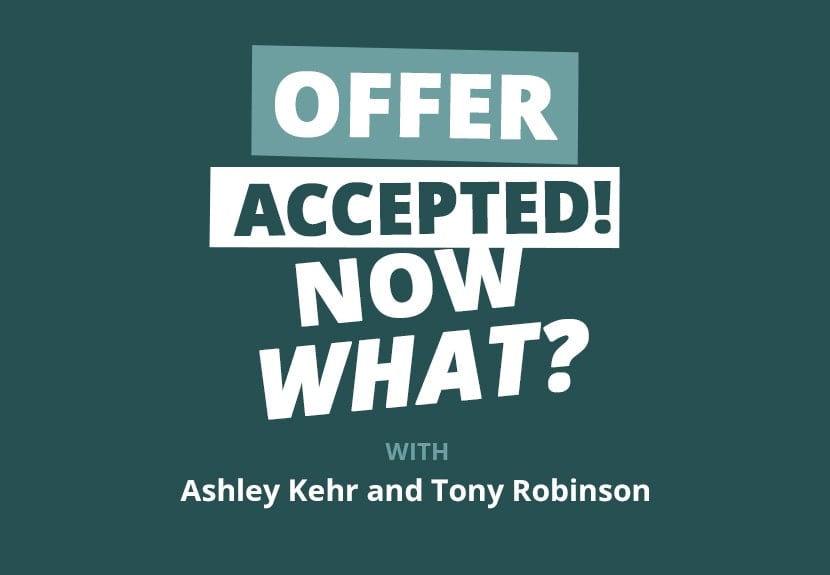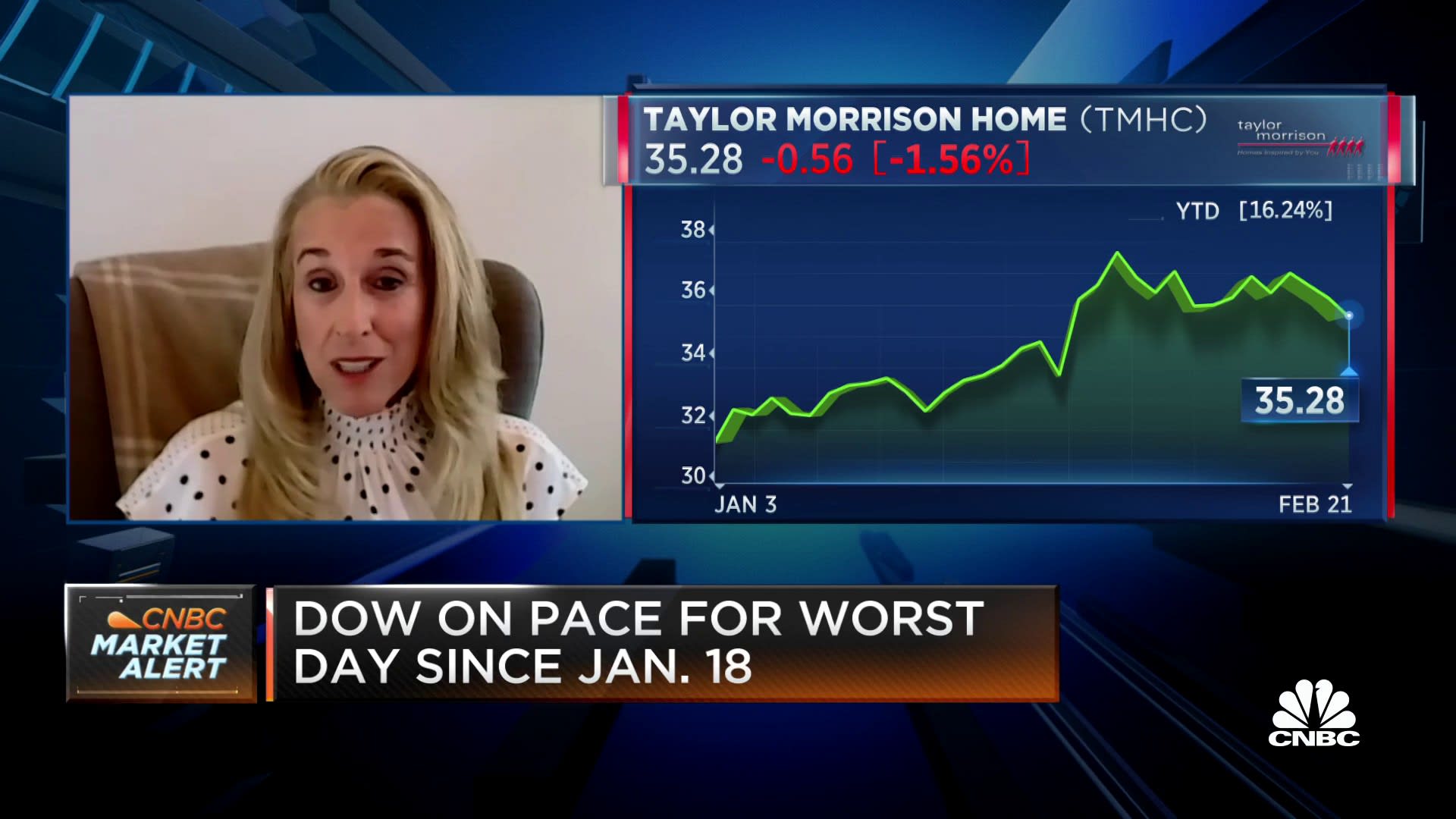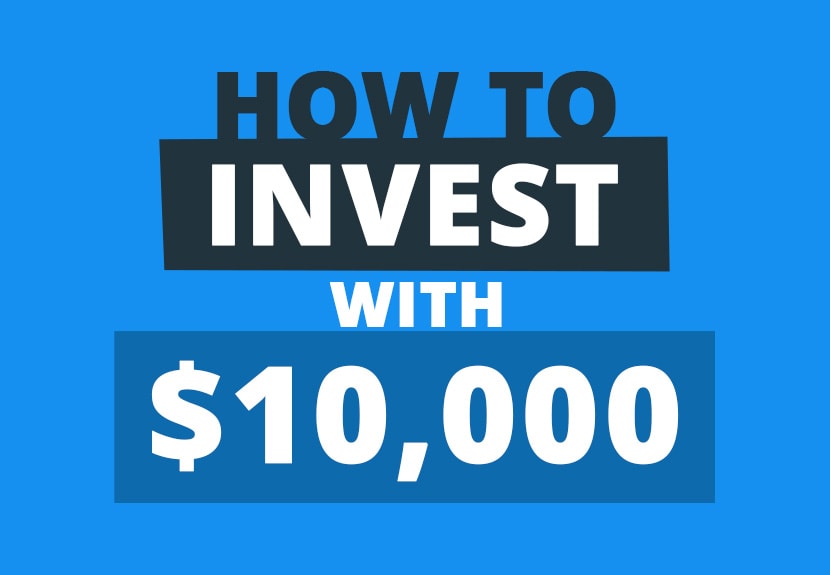America Enters a Rent-Burdened Housing Market
The housing market has entered into a new era never measured before. As of a recent update from Moody’s Analytics, the rent-to-income ratio across the US has reached an average of 30%. And while this may not seem like a big deal to casual investors, it has wide-reaching implications that could cause the housing market to move in different directions. This is the first time a rent-to-income ratio has hit this high percentage point, which could spell bad news for landlords.
Lu Chen and Thomas LaSalvia from Moody’s Commercial Real Estate division are joining us to explain the entire story behind the data. They have been closely monitoring the steadily rising rent prices for decades. With pandemic-fueled migration, Lu and Thomas both believe that we’re living in one of the most troubling times for renters. But how did this come to be? With massive housing development across the nation, what’s causing rents to remain so high? The answer isn’t what you might expect.
Lu and Thomas have seen developers shift focus to certain housing types, leaving much of the middle class in a rent squeeze. This “missing middle” could explain why so many families are paying a solid portion of their income to rent every month. But with reasonably priced rentals becoming a hot commodity, what can landlords do to ease the burden and open up more housing for those who need it most? And where will rent head next after it’s broken through this previously unshatterable ceiling? Tune in and find out!
Dave:
Hey, everyone. Welcome to On The Market. I’m your host, Dave Meyer, and today I’m going to be joined by two esteemed economists from Moody’s Analytics to talk about rent and housing affordability and multifamily.
We going to have a really fascinating conversation and I think, if you are a rental property investor, a commercial investor, you’re definitely going to want to listen to this because Lu and Tom, who are our two guests today, are really experts in rent growth and rent declines and recessions, and they have a really fascinating and expert opinion on what might be going on with rent growth over the next couple of years.
I’m not going to lead into it much more than that because it’s a fascinating conversation and I want to get into it. I’ll just tell you who these people are quickly.
First guest is Tom LaSalvia, who’s a senior economist in commercial real estate, emerging trends, housing sector specialty at Moody’s Analytics. He specializes in all sorts of things, but he told me before the show that multifamily is his love, and so he offers that expert opinion.
We also have Lu Chen. Lu is a senior economist at Moody’s Analytics commercial real estate division. She has deep knowledge of urban economics and credit risk with special interest in senior housing and urban migration.
We’re going to take a quick break and then we’re going to bring on Tom and Lu to talk about the multifamily market, rent growth and all sorts of other fascinating topics having to do with commercial real estate.
Lu Chen and Tom LaSalvia, welcome to On The Market. Thank you so much for being here.
Lu:
Thank you for having us.
Thomas:
An absolute pleasure.
Dave:
All right. Lu, you recently released an article called Key Takeaways from the 4th Quarter Housing Affordability Update, and this was at least for people like me, a fascinating read. I think our listeners would really like it as well.
Can you tell us a little bit more about your research into housing affordability and what it has shown of late?
Lu:
Absolutely, Dave. So this is really dear and near to our heart. As a CRE researcher at Moody’s Analytics, we care deeply on the housing affordability, which is on many American residents’ mind. We really started tracking this from over a year ago when we had seen a rapid increase in the market rent across the board.
And as we look back into the time series, as we look back into the data points, the most recent update has really shown a burning issue across the board. As we found out, the US is now rent-burdened for the first time nationwide since over 20 years ago, we start tracking this.
Usually when we, say, I gave them metros or the US is rent-burdened and that measurement we use is the rental income ratio. So essentially we measure how much rent each individual renter household is paying for a year, as compared to their median household income. So if the rental income ratio ever reach 30% or above, we call the renter household, rent-burdened.
And US as a whole in a fourth quarter of 2022 for the first time has reached that 30% threshold, and that was over one percentage point from a year ago and it has been increasing for the past year or so, and it only recently has been moderating, but it’s still an upper trending and that 30% is really that symbolic threshold that we care and which also in love with many of the policymaking which has been trying to tackle with this affordability issue.
Dave:
Oh, great. Thank you. I have so many questions about that, but at one of them you just touched on, which was, why 30%? You just said it’s symbolic. Is that all it is or is there some economic reason why having a rent-to-income ratio above 30% is particularly important?
Lu:
Absolutely. Just think about that 30% as a individual person. If I rent a house and have to pay 30% of my annual income on my rental is pretty burdensome, but there are, I mean academic and social evidence supporting that 30%. So Tom, correct me if I’m wrong.
I think HUD is using that 30% from about half a century ago. And Harvard, University has also been backing up, and so quoting a 30%, of course we have a 50%, which is even an severely burdensome threshold, but that 30% is high for average household overall. Tom?
Thomas:
Ultimately, this 30% was decided on when looking in particular at middle to lower income households and ultimately what they may have to sacrifice if they have to pay that 30% or 35% or 40%. So it’s not as though you go from 29.9% to 30% and all of a sudden everything changes.
So getting back to what Lu was saying about a bit of a milestone or symbolic in nature, but that 30% or around that 30% is important, especially in an inflationary environment because the price of everything’s been going up including necessities. So then choices have to be made by the household.
And households need their shelter. They need a place to live, and we often say, “Rent eats first.” And what that means is we’re going to try to keep our kids in our apartment as long as possible without having to upend their lives and move to a different school district or a smaller house, et cetera. And unfortunately, we might have to sacrifice in other areas. And I think that’s the significance of being around that level.
Lu:
And Dave, I’m not sure if you have heard a recent debate on the Federal Reserve bringing back the inflation to the 2% target, and people have been questioning, “Why it is 2%? Why can’t we raise that to 4%?” Because how much different is from annualized growth from two to four percentage point? Probably you don’t feel a dent if you are a little more the average.
But ultimately as turned out of those the two earlier, we have to stick to some kind of a threshold, even if that doesn’t mean too much difference if you are looking at 29 percentage point versus 31. You just have to have something to stick to. And it just turned out that 30% is a consensus where academia, policymaker and society agreed upon that 30%, is that line we want to stick to.
Dave:
Okay. Well, great. That’s super helpful. And just to recap for everyone, we’re talking about the rent-to-income ratio, which compares how much a family has to pay in rent compared to their household income. And it is now, for the first time in the US, surpassed this threshold of 30%, meaning that the US on a national scale is now a, quote, unquote, “rent-burdened nation.”
Lu, you had mentioned earlier that this is the first time this has ever happened. Has there been other periods in the US where rent has been close to this unaffordable or is this a relatively recent phenomenon?
Lu:
We have been very close to the 30% threshold for some time, but I have to emphasize we didn’t get to this point a decade ago or two decades ago. So we first started tracking the national average rental income ratio. We started off at 22.5% and that was back in 1999.
So if you think about that, that was less of one fourth, one quarter of the average, the media income households budget, and now we are close to one third of the budget. And there are period where you can see the rate has been moderating and there are period you have been seeing the rate has been picking up. And I have to say the second half of 2021 up until now is where we see that rapid increase of the rent-burdened across average American household.
Thomas:
Yeah. And I’ll add to this, in that over the last two decades, the general trajectory has been upwards, as Lu mentioned. And what that is telling us is that there is somewhat of a mismatch between the development side of the industry and the demand side.
Population continues to grow, income continues to grow, but in an unequal manner. And when that’s happening, we’re using scarce resources to build certain types of housing or other types of real estate within the country or infrastructure within the country. And unfortunately, little by little over the last two decades, it’s become more and more expensive to afford more shelter.
Now of course, there’s nuance in, and I don’t think we want to lose that in this discussion because you as a household still have a bit of a choice of where you live. Whether which metro you live in or within that metro, which neighborhood you choose, or within that neighborhood, which building and which square footage you choose.
So we’re not saying that every single household is facing this burden, but what we are saying, is that the level of income generally being spent on shelter continues to rise. And that’s true at the multifamily side of things. That’s true at the single-family side of things. And little by little there, again, there needs to be trade-offs, particularly at that middle to lower income side of the income spectrum.
Dave:
That’s super helpful to know and it just seems like we’re seeing this across the board, multiple asset classes, a lot of different markets, which I do want to get into. But I’m curious just a little bit more, to talk a little bit more about why this has been happening more recently?
You talked a little bit Tom about this. It seems like an imbalance in supply and demand in some markets or some places in housing. Not necessarily in rental housing. We’ve talked about that sort of stemming from a lack of construction during post-Great Recession.
Is that sort of what happened in the rental market as well? And also curious, like you said, it’s been close to 30% for a while, but we only recently hit it. Why now? What has happened during the pandemic that caused it to really sort of reach this breaking point?
Thomas:
I’ll start with the former question of-
Dave:
Sorry, that was like a six part question.
Thomas:
No, no, no, no. All related.
The supply side story is quite interesting because there has been a good deal of multifamily construction over the last couple of decades. It’s gone up and down given the different parts of the economic cycles that we’re in. But the point is where the money’s been spent, that I think is really interesting and it really highlights why rent levels are increasing at the rate that they have been in relation to wages.
If you look over those last two decades we keep talking about, somewhere between 80 and 90% of development within multifamily, has been to class A type properties. Not B, C. Not the, quote, unquote, “workforce housing” that’s getting a lot of buzz recently. So I’m leaving outside the whole LIHTC side of things in public side, when I’m saying that 80 to 90% number. But it’s still really telling, right?
Again, these are scarce resources. We know labor is scarce, we know materials are scarce, and when so much of this capital is being devoted towards that type of housing, and rightfully so from the market’s perspective, because they can lease that up still, right?
Dave:
That’s it.
Thomas:
But it those are going to be higher rent places and ultimately it’s going to cause the market to be tighter in the workforce side of things. And we see that in our data very clearly. Class A, a vacancy rates trend around 6%. Class B, C vacancy rates trend around three, three and a half percent. And that just shows you that difference of what’s happening here.
And so you’re really getting this ecosystem effect of housing, where so much of the construction and supply has been in one particular area and that by itself is causing rents to rise in that area, but then it’s causing rents to rise for B and C as well. And it is again, going back to who is this hurting the most? It’s hurting the middle to lower income households the most.
So I think I answered at least some of your first question as to why the supply story is the way it is. But Lu, if you want to add to that and maybe then jump onto that second part of the question.
Lu:
I don’t have much to add on the supply side, but I’ll also continue on the demand side of the story. So if I can represent the millennials, I have to say the demand has remained really strong, as millennials are forming and had a new households in recent years in particular.
So if you think about when the demand side is ballooning, if you have more household entering into the new rental market and housing market in general, and then we have this COVID period which has that shock, which allows people to move around from metros to metros.
I do want to bring a little metro level nuances, because when we say the US national average is reaching that 30% threshold, I’m not trying to say everywhere is hitting that 30%. So there are places which are well above that 30% rental burden, but there are also places where although it’s below that 30% threshold, but you are seeing this increasing trend for the certain metros. And the metros, and if I just call on a few metros, Las Vegas, metros in Texas and Miami, Fort Lauderdale, Palm Beach in Florida.
So all these places in the Sun Belt, they have been seeing the positive in migration coming from people who really enjoy sunshine, enjoying the beach, enjoying more spacious spaces. And when COVID happened, when remote working becomes trendy, become a possibility, become a necessity. And you see people voluntarily moving from California over to places where they have less COVID restriction, lower taxes, cheaper houses. So that migration flow is bringing a lot of metros to a faster track on their rent-burden.
So that demand side is really adding that pressure to this already very tight market. So if we recall what Tom said about the B and C, all those places for the workforce population, and we already having a very tight market and having this shock from the demand side is not helping the situation very well.
So that’s why we are seeing this increasing burden and fast increasing burden, which really started off by the end of 2021, continue on the majority part of 2022, and only recently we started seeing that moderating a little bit.
Dave:
That makes total sense. I’m curious if you see the opposite effect in some of the metros that are losing population. Are we seeing an increase in supply and then a subsequent, some downward pressure on rent growth?
Lu:
Tom, may I start it off with San Francisco?
Thomas:
Hey, you live there, so go for it.
Lu:
Absolutely. So San Francisco was one of the metros we are still seeing, its market rent was 1.6% behind, nearly 2% behind its pre-COVID level. So that’s after we struggle for three years and trying to make up just as everybody else, and we are still having that little gap. Believe it or not.
The reason was, everybody was staying in San Francisco was a really tight market. You have only this little space to build and why we are having this problem, is really driven by the demand. So the shift of demand, people getting pressed out and people got so fed up by the wildfire and people who has luxury of working anywhere. So they left San Francisco, they left the Bay Area, they brought the demand away, and that is creating that much bigger hole to fail.
So on the other hand, not only we are seeing the rent decline, although for many other places we like to say the rent growth has been moderating, but for San Francisco, it was really just we haven’t been able to catch up. That’s one side of the story. And on the other side, if you track the median household income has been increasing and increasing rapidly by people who’s really earning a lot from the tech boom, especially in the first two years of the COVID period.
So declining rent combined with increasing income is really alleviating, at least on the paper. The rent burden for San Franciscoers. So we used to be, if you track the history of the top 10 rent-burdened metros for the past two decades. So San Francisco has been in and out of the picture for quite a bit. So there has been a lot of variation because metros like San Francisco, like Washington, DC. So all these very well established tech metros is very cyclical.
So whatever there is a recession and the tech sector is much more volatile than many other traditional sectors. And you see it’s driving that demand, driving the income growth for the metros. And that’s why San Francisco has been about 30% for some time and then when dot-com bubble hit, it dropped off the list, and then it climbed up again reaching above and beyond 30% and back to below.
So there has been variations, but it’s interesting to see how a metro like San Francisco can be affected by both supply and demand, and in certain cases can be significantly driven by the renter household and their decision.
Thomas:
Yeah. I’ll jump in here and just somewhat not counter what Lu is saying, but I want to bring up the fact that if this is happening in San Francisco, why wouldn’t it happen in Boston, in New York? Some of the other cities that have been known to be very high rent cities. And so it’s a very interesting situation here where we saw all this migration early on in the pandemic towards the Sun Belt and we had all of these Sun Belt darlings of Phoenix and Austin and Miami and Jacksonville and Tampa, et cetera, et cetera.
Little by little over the last, I would say 18 months, we are seeing maybe some of those folks return to some of these northeast expensive cities, possibly as the office comes back a bit. But there’s another part of this demand story for cities like that, and I still think San Francisco is going to have a bit of this. And these are lifestyle cities that are unique in their own right.
And so while one might expect a lot less demand side pressure for a New York or Boston, what we really saw is household formation pick up dramatically in these areas, and leasing activity pick up dramatically in these areas in the last year to year and a half. And what that’s telling us is that there is this quality.
If people really are choosing lifestyle moves, it doesn’t mean it’s all to the Sun Belt and it doesn’t mean that all of the affordability issues are the Sun Belt, because we’re seeing incredibly high rent-to-income ratios in some of the traditionally expensive cities. And Lu, I think you can back me up on that with some of the data that these areas have come back and there is no rent relief for even these traditional northern cold weather cities.
Dave:
Were you saying, you’re saying that there’s household formation, is that possible that it’s these people were remaining in a roommate situation or living together because things were so expensive and now that there maybe is a little bit less competition.
I know rents in Manhattan have exploded, but do you think there’s some reason why household formation is picking up right now?
Thomas:
There is a timeline here that I think is appropriate. Early in the pandemic, we didn’t want to be around other people. We were scared and we also didn’t have to go to the office. So a lot of the younger generation that often, are the ones that populate New York City.
Many of them moved back with mom and dad and slept in their old room or on their couch or whatever that hobby room became or whatever it is. And so we saw this kind of pullback and activity and that’s when all of those huge discounts in Manhattan were being talked about and how if anybody wants to go back to the city, there’s a great opportunity to get a huge discount.
And then a year after that, when everyone had to renew, well all of those kids, all of those people who were on mom and dad’s couch came right back. They’re not the ones that chose Florida, especially that young and hungry group. There’s still value in New York, there’s still value in Boston, there’s still value even in San Francisco I think ultimately, for that type of the population.
And so once things opened up a little bit, once a little bit of a return to the office, that’s when you saw a tremendous amount of activity. And many of those people at that point were still at least a little hesitant to get roommates.
Dave:
That’s it.
Thomas:
And so think about it. Now you have extra households looking for more studio apartments or one bedroom or at least you’re not bunking up, maybe even illegally, which I’m not saying happens, but it may happen in places like New York. Where you’re actually having too many residents within that particular apartment and you’re living in a broom closet, I always say.
So I think there’s this timeline of a pullback and then this kind of back to the city mentality, but back to the city maybe without a roommate at first. I have a feeling that’s going to change, is changing right now. It’s going to continue to change in 2023 as the economy softens a little bit.
Dave:
Okay, great. I do want to get to talking about what happens from here and where you think rent is going to go. But Tom, you mentioned something that I want to sort of go back to, which is that in the market, multifamily market, the supply side. We’re seeing that over the last couple of years, development has been focused on class A properties.
This isn’t a podcast for real estate and primarily real estate investors. When I think about that, that tells me that the risk reward profile for class B, class C construction and development is just not there because these markets tend to be efficient. Do you have any idea why? Why is it not attractive or why are developers not building class C and class B properties at the same rate?
Thomas:
It’s a fabulous question and I have spoken to a good amount of developers about this. And consistently I’m told that B and C just hasn’t been able to pencil in the last 10, 20 years, meaning that the math doesn’t work nearly as well as the math works for class A.
The land costs the same amount of money regardless of what you’re going to put on that land. A lot of the structural development costs the same amount of money. A lot of the red tape is exactly the same that you have to deal with. So I slap on a few more amenities, maybe add a little extra space and a little better lighting and I can up that rent considerably.
And so developers continue to say, “Well, if class A vacancy rates are going to stay around 6%, if I can lease up those properties pretty quickly and efficiently, then I’m going to go that route. I don’t need to build workforce housing because the profitability is more within class A.” At least it has been, I would say in the last 10, 20 years.
Lu:
Or on the other spectrum, if the developers are not building class B and C multifamily, it’s probably better to start thinking or even investing in affordable housing. So there is a term which I started hearing a lot, it’s called the missing middle because if you start constructing affordable housing, there is a bigger collaboration between the public and private sector.
So we have tax benefits, we have government sponsorship, and we have policy which are designated for supporting the building of affordable housing. And then we have this economic incentive to build class A, which left majority of the middle of the renter household be missed out on the market opportunities, because they can’t qualify for affordable housing and they cannot afford class A.
What are they going to do? So Tom, I recently did a very interesting exercise. So there is a kind of a threshold, if we say 50% of the media income household, income is considered as the low income. But if you put 70, 80% of that media income as moderate but still low income, and if you plug that number into our rental income calculation and many more metros will jump up at me, because they all of a sudden become even more rent-burdened.
Because that’s where we are seeing a lot of the missing middles and they couldn’t afford the market rate apartment on the market. And I think that goes back to where I live in California and we have a lot of policies not just for affordable housing, but also to build out additional units such as ADU. Not sure Dave, if you are familiar with that term, it’s Accessory Dwelling Units, which can be attached or detached to a single-family housing unit to hopefully increase the supply for the missing middles.
And there has been a lot of conversions from existing vacant commercial properties and they work with the planning department to rezone a little bit and convert that into a multifamily and hopefully allocating certain units into affordable. So there has been a lot of innovative ways, creative ways of solving and at least trying to address this shortage in supply.
Dave:
Yeah. We talk about ADUs and upzoning a bit on the show because it is a good idea. I’m just curious if it’s enough? Right? Because I know a lot of real estate developers, if it was profitable to build class B or class C, they’d do it. And I don’t know how many homeowners want to build an ADU. Who are willing to put up the cash.
Lu:
I’ll build a ADU.
Dave:
Nice! That’s awesome. There you go. Good for you. It’s a great business, but I’m just curious, are enough home buyer, it just seems more efficient to me to figure out a way to incentivize the people who are professional apartment builders to build the right housing units rather than only relying on homeowners to become real estate investors.
Thomas:
And Dave, I think that’s where we’re headed. I think public-private partnerships incentivizing the private developers to find a way to build this missing middle.
It’s already being discussed at the federal level, state levels, municipality levels, and I think we’re going to just constantly hear about it, whether it’s an expansion of LIHTC in terms of the-
Dave:
What is LIHTC? Sorry.
Thomas:
Oh. No, sorry. So Low-Income Housing Tax Credit.
Dave:
Okay.
Thomas:
L-I-H-T-C. Low-Income Housing Tax Credit. And it basically incentivizes developers if they put a certain amount of units that are at a certain threshold of the area median income, in that building they can get certain relief. And we’ve heard the Biden administration talk about expanding that. We’ve heard even the word MIHTC being thrown around, which would be Middle-Income Housing Tax Credit. And so I think that’s part of the solution.
I think another part of the solution will be we’re finally at an era where zoning laws are going to be relaxed a bit. And I think that’s going to be huge for development not only in the housing sector, but I think all across commercial real estate.
The one maybe a silver lining out of this rapid rise in affordability issues is that it finally has told local leaders that they have to think about what has been working and what hasn’t been working and having very segmented zoning while it’s going to be maybe tough to relax those in particular areas, given nimbyism, it’s going to be needed in a lot of areas and I think it is going to be granted in a lot of areas moving forward.
Dave:
Yeah. I mean ultimately there are so many proposed solutions. Maybe this is just my opinion is that until the supply side issue is adequately solved, they’re all going to be band-aids and maybe they’ll help in the short-term, but it just seems like getting developers to build more or allowing developers to build more of this missing middle housing class could be really helpful.
I do want to ask you though, I’m sure everyone on the show listening, wants to know what you both think about where rent is going now. So Lu, you’ve done a great job explaining how and why rent has skyrocketed. We’re seeing this big rent burdened. What happens from here?
Lu:
There is light at the end of the tunnel. So I want to start it off with a positive note and hopefully also end with a positive note. So 2023, we are projecting there would be a historic amount of new construction coming online on the multifamily front. And there are a couple of reasons.
A lot of the construction, which takes months and up to over a year to finish. And they started off as early as 2021. So that’s where we still have a little bit of the cons, supply side of the issue, the bottleneck on the supply chain, but it really penciled out for the developers.
So the rent was growing rapidly, the interest rate thinking of when federal reserves started rising interest rate in early 2022. So at that point, a few months before that, the interest rate was still relatively low, the margin was high, the cost was relatively manageable, and which inspired that construction to start or existing construction to continue.
And the supply side, we are looking positively, we are going to see an increase in the volume and on the other hand, the demand will stabilize because we are already seeing the softening, the stabilization towards the end of 2022. So this affordability issue, this fear of recession, this hesitation of moving back into the single-family housing market will retain a lot of the rental household to stay in the multifamily market for some time. Fingers crossed, nothing goes south from there. And that’ll help stabilize the rent growth.
So we might already be seeing the peak of the rent-burden across the nation. So 30% might be around the peak that we are seeing. And I did have a sneak peek of file 2023 projection on the rental income ratio. I know Tom going to be laughing at me because we do update on a quarterly basis, but at this point, based on the latest vantage data we are seeing by the end of 2023, the national level rental income ratio should be slide off that 30% peak, not by much. Again, this is a symbolic number, but we should see the moderation of this burden little bit.
Dave:
Okay. That’s really interesting because I think as investors we often, I’ve been saying to people, “I don’t think rent is going to grow for a long time.” Not, I don’t know a long time, but at least for another year or two during this economic uncertainty we’re in.
Are you saying that the rent-to-income ratio is going to fall because rents are going to fall or are they going to sort of stabilize and income is going to keep rising?
Lu:
Just for the record, we are not projecting one way or the other. So we are seeing the moderation of the speed because it really goes down to the metro level nuances. So at the national level, we are seeing the rent growth, going back to where we likely to see the long run average. So it’ll be moderating to a three percentage range, but at the metro level there are places where we might see, start seeing rent decline, but there are also places where we might still see the rent is relatively more stable than many other places.
So we have to realize, it’s not just about the supply and demand, but also on the other hand, the rental market, the rent is quite a key figure. So many renter household, they only renew the rent after at least a year. So that’s their biggest term. So that’s why when you look into the shelter inflation in the CPI report, and even based on the latest reading, it’s still sticky high somewhere in the seven percentage range. And on the other hand, Dave, you probably already seeing in certain places there has been decline in the new visas.
So that is where you see that disparity of divergence, where the CPI data is tracking a combination of the existing rent and also the new rent and which is showing that stickiness. But on the other hand, some of the new leases are showing the discount. So Tom, I know you want to say something.
Thomas:
I think you said it beautifully. I will add not only new leases, but particularly in some of the newest construction when those property owners are trying to lease up those properties, we’re seeing concessions grow a little bit. But I would like to say again, that we are not predicting a widespread level of rent declines based off of what Lu had already said about the stickiness.
But I’ll throw in there from the Moody’s perspective, we don’t at this moment expect a recession. We do expect softening of the labor market, but historically to get rent declines or at least a consistent amount of rent declines over a one to two quarter time span, it requires some stress in that labor market. It requires an increase in unemployment. And right now, I mean goodness, look at the employment situation report from not that long ago, 500,000 jobs at it. So we’re at a two to one ratio of job openings to the mount that are unemployed.
So unless we see dramatic changes to the labor market, and by the way, we are fully expecting a softening, but unless we see dramatic changes, we can’t predict widespread rent declines because people are still having jobs and they still feel relatively confident that they’ll have those. I think part of this still goes with the expectation story, but it is an employment story. So if you want to know what’s going to happen with rent, watch that labor market closely.
Dave:
That’s super helpful. And I do want to unpack a couple of things there before we get out of here. Just to summarize for everyone listening, one of the reasons rent is so sticky like Lu said, is because when you look at rents, there’s different things you have to consider.
There’s what people who are staying in the same apartment is paying and what people who are moving or signing a new lease are paying. And those are sometimes tracked differently and different rent data companies have different methodologies. The CPI has sort of this famously lagging methodology, and so there’s different ways to think about that.
And so I just want to make sure I heard it correctly, is that you think that there could be, or there is evidence so far that people who are renewing or are looking for new leases, there is some signs that rents are softening there, but as a whole, rents are remaining pretty stable right now. Is that right?
Lu:
That’s a fair statement.
Dave:
Okay, great. And then I was just curious, Tom, you just said about historically what it takes for rent to grow down. I mean, I can’t remember off the top of my head, but I do think we did see some rent declines in the 2008 era, not nearly as much as home price declines. I mean a fraction of it. But can you tell us the depth and scope of what happened with rent prices surrounding the financial crisis?
Thomas:
Yeah. We saw a bit of a decline. Lu, if you can help me with the exact numbers, I want to say it’s just one to 2% over a couple of years. But think about that situation from an economic point of view.
Unemployment was around 10% and it stayed there for a little while and this situation’s dramatically different. We saw a vacancy rates increase, well above five, six, 7%. I think we copped out around 8% in the multifamily perspective. And so you have to loosen the market again before you get dramatic rent declines.
So I hope that you as an investor or a lender did not put 7, 8, 9, 10% rent growth on your proforma when you were getting that deal done a year or two ago when rents were growing there. But if you did put the long run averages, there might be a little bit of a hiccup this year here or there. But I think overall that’s where we’re trending back to, going forward. And Lu, do you have those exact numbers?
Lu:
Thank you for buying that time for me to look into the exact numbers. Really appreciate it.
Last summer, summer of 2022 is when Tom and I was really interested. That’s when everybody was sheer giddy into a recession and they saw two quarters of GDP, negative GDP growth, and they were like, “Are we there yet?” So when everybody was talking, and of course Tom and I were interested and we compare and contrast every single recession from the late 1970s, early 1980s when we call it a Volcker period up until the 2020 COVID recession.
So interestingly, if you look at the single-family housing and multifamily housing markets, they play that rhythm very well. So usually you start seeing the single-family housing press getting a slap slashes at the beginning of the recession. It really just signaling we are in the recession and at the same time, multifamily, if you look at every single recession, it’s almost consistently it doesn’t get hit right away.
When will multifamily housing, multifamily rent get a hit? Is where we are almost out of the recession. Why? Because that’s when people are seeking the opportunity in the single-family housing market. So they boosted the single-family housing price to roll, and at the same time, because they played that rhythm really well and multifamily, that demand was shifted and you start seeing, the rent changes, having that bigger impact.
So looking at the Great Recession, just to put the number in there, so we have an idea where we are. So during the Great Recession from 2007 to 2009, the single-family housing price, if you compare the peak with the trough, declined 15% at the national level. And that is CPI adjusted, by the way. And at the same time, multifamily rent growth, which had a declined after 2009, only declined 1.6%. Less than 2% if you compare the peak and trough. So it gave us the idea of the timing and the scale.
Dave:
That’s so interesting. So you’re saying that basically people wait or the decline in home prices sucks demand out of the multifamily market because people want to buy homes while they’re cheap. Is that, did I understand that correct?
Lu:
So when you start seeing the single-family housing market momentum picking up, that’s where you’ll start seeing the demand being subtly shift from the multifamily housing units over to the single-family housing market. And that also, I would hope that could be a leading indicator when we start seeing a massive rent decline across the board, maybe that’s a signal we’re out of this doom.
Dave:
So the multifamily decline is actually a signal that a recession might be ending.
Lu:
I hope. So we still have to run statistical test if that’s a hundred percent signal, but usually that happens along that timeline.
Dave:
Okay. That’s super cool.
Lu:
And if you look at the past recession, so sometimes the NBER will define the recession to end even prior to seeing the multifamily housing then declines.
Dave:
Okay. Interesting.
Lu:
So the timing goes along the timeline of the recession, but it wouldn’t necessarily be prior, if I have made that…
Dave:
No, no, but that totally makes sense. That’s really interesting. It lags the rest of the economy and the home prices a little bit.
Lu:
And also because of the stickiness.
Dave:
Yeah. Interesting. All right.
Well, thank you both so much for being here. This has been fascinating. I have learned a ton today. I really, really enjoyed learning from you both. If people want to connect with you, Lu, where should they do that?
Lu:
I’m happy to share my email.
Dave:
Great.
Lu:
So it’s [email protected]
Dave:
All right. Great. And Tom, what about you?
Thomas:
Analogous to that, [email protected], or you could check out our Moody’s CRE webpage, which has a lot of our insights, and we’ll be able to maybe Dave, we could attach that somehow.
Dave:
Sure, yeah, we will link to that in the show description for sure.
Thomas:
Great.
Dave:
All right. Great.
Well, Lu Chen and Tom LaSalvia, thank you so much for joining us On The Market.
Lu:
Thank you for having us Dave.
Thomas:
A true joy, thank you.
Dave:
Big thanks to Tom and Lu, again for joining us for this episode of On The Market. They are both from Moody’s Analytics. If you want to check out their work, you can do that. They have a great website, all sorts of information about the real estate market, commercial real estate and all that.
I genuinely learned a lot about that. I think that the takeaways here for me, the big ones at the end were that, we say this a lot on the show, but I’m glad to have two economists back me up, that rent is particularly sticky. And although we might see some headlines that rent is going down, it was very likely to be a very modest decline in rents right now.
But I just wanted to reinforce what I’ve been saying for a little while here, that if I were you and buying real estate and underwriting real estate, I would assume very modest rent growth for the next 12 to 24 months. As Lu and Tom’s research indicates, we’ve sort of reached this threshold where people might not be willing to pay any more than they have right now, and we saw this rapid increase in rent and it sort of makes sense to me that the market is going to cool.
I think the other thing I found just super interesting personally was just about that missing middle and how there’s just a lack of building in class B, in class C, multifamily. It’ll be interesting to see if there are more public-private partnerships or better zoning opportunities because it just seems like something that the market needs, that there’s going to be demand for this type of housing and there is a lack of it.
So that’s something I’m definitely going to keep an eye on. Would love to hear what you all learned from this episode. You can find me on the BiggerPockets forums. There is an On The Market podcast if you want to talk about anything you learned or ask any questions, you can find me there or you can find me on Instagram where I’m @thedatadeli. Thank you all for listening. We’ll see you next time.
On The Market is created by me, Dave Meyer and Kailyn Bennett. Produced by Kailyn Bennett, editing by Joel Esparza and Onyx Media, researched by Puja Gendal, and a big thanks to the entire BiggerPockets team.
The content on the show On The Market are opinions only. All listeners should independently verify data points, opinions, and investment strategies.
Interested in learning more about today’s sponsors or becoming a BiggerPockets partner yourself? Check out our sponsor page!
Note By BiggerPockets: These are opinions written by the author and do not necessarily represent the opinions of BiggerPockets.

